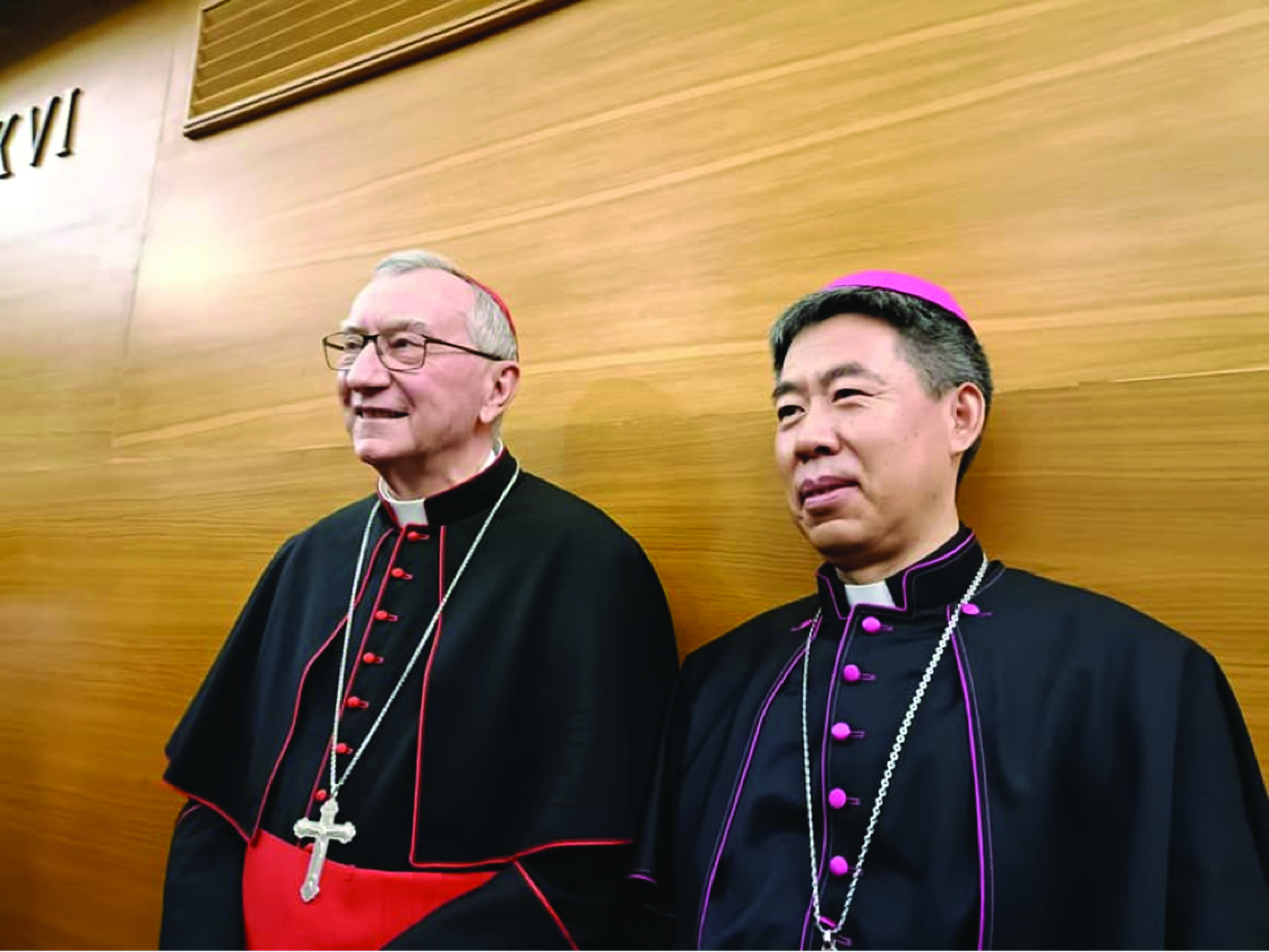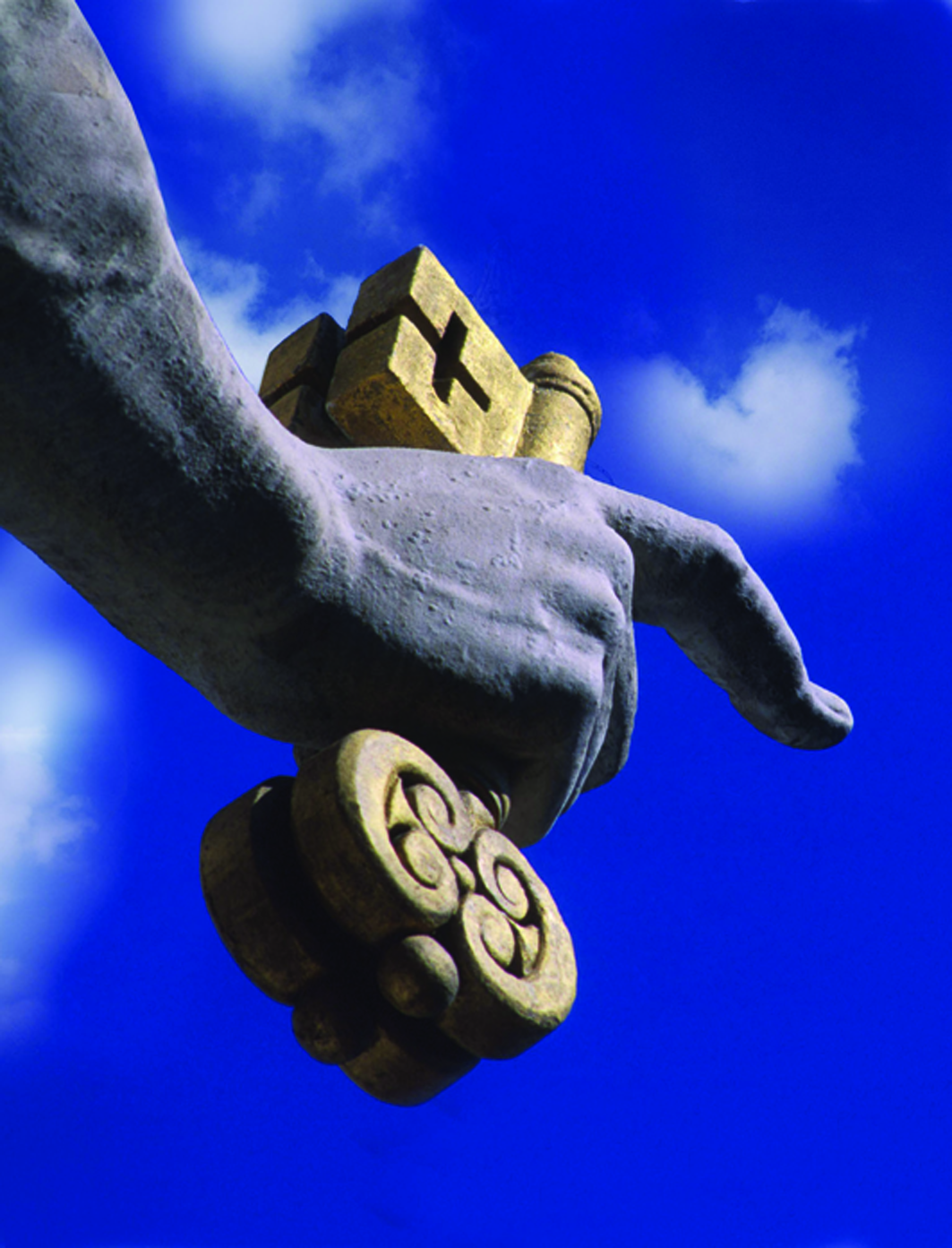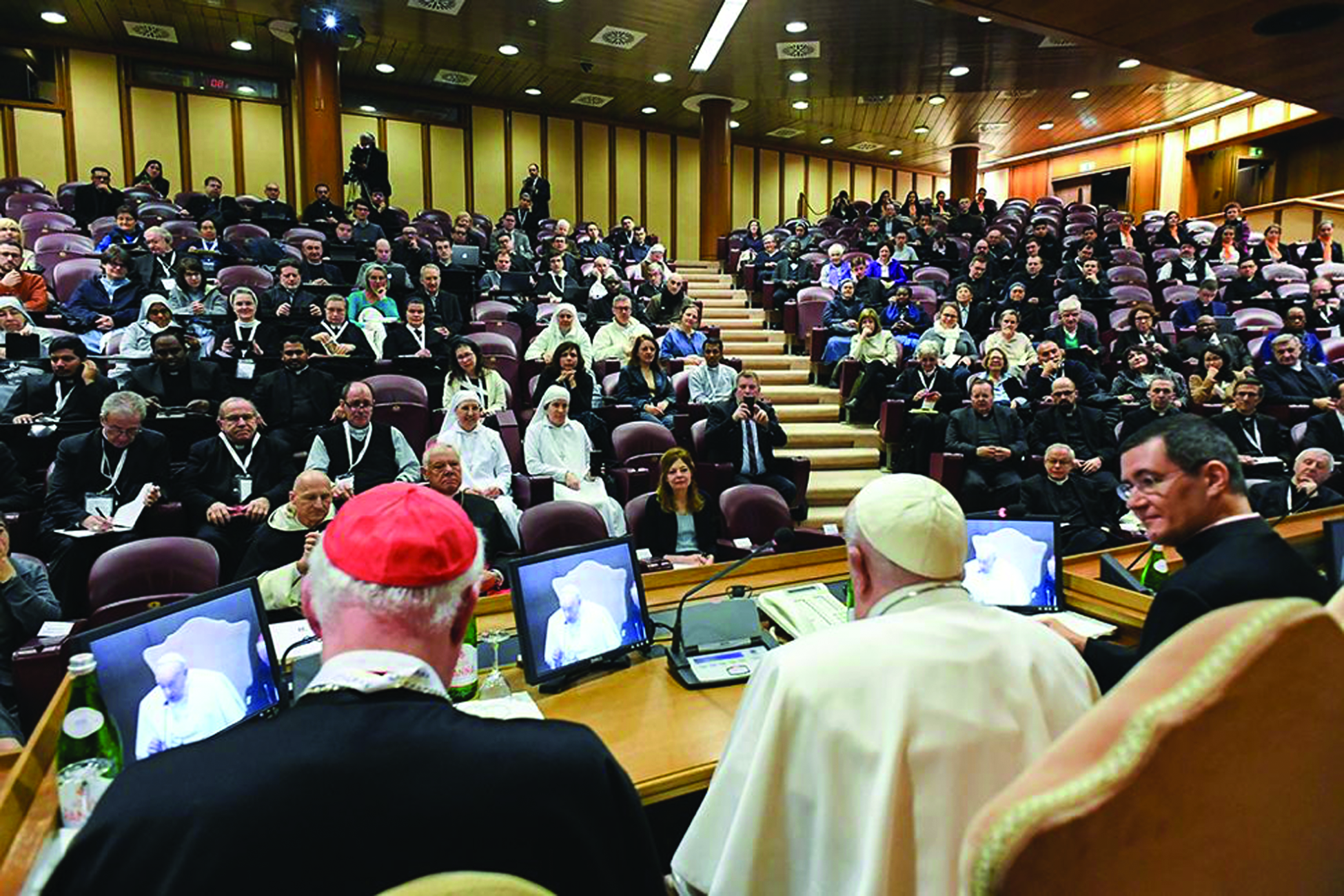Pope Francis has reached out in a very friendly way to Muslims, calling them “brothers.” He has done so on a number of occasions, including at Aparecida on July 24, when he met a representative of Brazilian Muslims, and on August 11 when, from the Vatican, he extended his greeting to “the Muslims of the entire world” — some 1 billion of them, who had just celebrated the end of the month of Ramadan.
I discussed the Pope’s approach and his use of the word “brother” for Muslims with Archbishop Michael L. Fitzgerald, one of the Catholic Church’s top experts on Islam, former head of the Vatican’s office for interreligious dialogue (2002-06) and papal nuncio to Egypt and delegate to the Arab League (2006-2012), who now lives in Jerusalem.
On August 11, Pope Francis called Muslims “our brothers.” How do you interpret this?
Archbishop Michael L. Fitzgerald: To me this is a further sign that Pope Francis is reaching out to Muslims in a friendly way. Already the day after the inauguration of his pontificate, when he met with the delegations which had been present, including representatives of Muslims, he surprised the director of the Rome mosque by embracing him. He later told the members of the diplomatic corps that for him dialogue with Muslims is a priority. Just recently Pope Francis has signed in person the annual message to Muslims for the end of Ramadan. Addressing Muslims as brothers (including “sisters,” one would presume) is in line with these steps.
Who was the first Pope to call Muslims “brothers”?
Fitzgerald: As far as I know, the first Pope to call Muslims “brothers” was Pope John Paul II.
Why did Benedict XVI call them “friends” and not “brothers”?
Fitzgerald: It may be that Benedict XVI was following an ancient tradition in the Church according to which only fellow Christians are called brothers. We find this expressed in a sermon on Psalm 32 by St. Augustine, and we can remember that Benedict is very much an Augustinian. Augustine says: “The prophet says of certain people: ‘To those who say to you, “You are not our brothers,” say, “You are our brothers.” Ask yourselves whom he could have meant — surely not the pagans? No, for according to the Scriptures and in the normal usage of the Church we do not call them our brothers. Surely it was not the Jews, who did not believe in Christ? Read the apostle (i.e., St. Paul), and observe that when he says ‘brothers’ without any qualification he means only Christians” (Office of readings, Tuesday of 14th week of the year).
Could you mention some significant statements by Popes in this regard since the Second Vatican Council?
Fitzgerald: Before setting out on his apostolic journey to India, Pope Paul VI referred to this trip in a general audience (2 December 1964). He called it “a journey of friendship and fraternity.” Having arrived the following day in Bombay (now Mumbai) he said: “We must meet not merely as tourists, but as pilgrims who set out to find God — not in buildings of stone but in human hearts. Man must meet man, nation must meet nation, as brothers and sisters, as children of God.” Of course the Pope was speaking to the people of India in general, but we should remember that Muslims make up a considerable number of the population of that country.
When Paul VI journeyed to Uganda in 1969 he made a point of meeting with Muslims. He expressed to them his hope “that what we hold in common may serve to unite Christians and Muslims ever more closely in true brotherhood.” If we are united in brotherhood, there is surely no reason not to call one another “brothers.”
John Paul II was even more explicit in the use of the word “brother” for Muslims.
Fitzgerald: Yes! John Paul II did not hesitate to call Muslims “brothers.” Speaking to representatives of the Muslims of France on May 31, 1980, he said: “It is with great joy that I address my greetings to you Muslims, our brothers in faith in the one God. Through you I salute all your brothers and sisters living in this country.” When he met representatives of Muslims in the Philippines in Davao, on February 20, 1981, he was even more explicit. “I deliberately address you as brothers: that is certainly what we are, because we are members of the same human family, whose efforts, whether people realize it or not, tend toward God and the truth that comes from him. But we are especially brothers in God, who created us and whom we are trying to reach in our own ways, through faith, prayer, and worship, through the keeping of his law and through submission to his designs.” He continues: “But are you not, above all, brothers of the Christians of this great country, through the bonds of nationality, history, geography, culture, and hope for a better future, a future that you are building together?” (G363 emphasis in the original)
In this speech we can see different reasons for using the term “brothers” to express the relationship between Christians and Muslims: first of all simply as human beings, since we are all members of the one human family; secondly, because Christians and Muslims are united in their belief in and in the worship of the one God, even if their ways of expressing their belief and worship differ. Thirdly, there is the brotherhood that exists when Christians and Muslims belong to the same nation.
Apart from the statements by Paul VI, John Paul II and Francis, are there some significant Church documents where this concept of Muslims as brothers is used?
Fitzgerald: The Second Vatican Council was the first Council ever to mention Muslims. It does so twice. In the Constitution on the Church it is stated that “the plan of salvation also includes those who acknowledge the Creator, in the first place among whom are the Muslims: these profess to hold the faith of Abraham, and together with us they adore the one, merciful God, mankind’s judge on the last day” (LG16). The Declaration on the Relations of the Church to Other Religions has a special paragraph on Islam. Brotherhood is not mentioned, but the paragraph starts by affirming that “The Church has also a high regard for the Muslims” (NA3).
Attention should be given also to the final paragraph of this Declaration. Here the purpose is to remove the basis for discrimination of any kind. The following are the significant words: “We cannot truly pray to God our Father of all if we treat any people in other than brotherly fashion, for all men are created in God’s image. Man’s relation to God the Father and man’s relation to his fellowmen are so dependent on each other that the Scripture says, ‘He who does not love, does not know God’ (I Jn 4:8)” (NA5). It is true that this text is addressed to Christians, and it is true also that Muslims would not wish to use the name of Father for God; nevertheless if people are to be treated in brotherly fashion, there should be no objection to calling them “brothers.”
Following Pope Francis’ remarks, I have seen on Twitter comments like “Yes, they are brothers like Cain and Abel,” or “Why does the Pope call them brothers when they kill or behead us?” What do you say to such people?
Fitzgerald: One could say: Of course, brothers do not always behave, but this is not a reason for not considering them as brothers. We should remember too that our Christian brothers in past centuries, the Crusaders, did not refrain from killing people. We should remember too that it was Christians who dropped the first atomic bomb.
From your experience, do you think Christians in majority Muslim countries are happy at the identification of Muslims as brothers of Christians?
Fitzgerald: It is hard to generalize. It seems to me that many Christians in Muslim majority countries are quite happy to call Muslims their brothers. In Egypt there is a movement called al-ikhâ’ al-dînî, “the Religious Brotherhood,” which brings together Christians and Muslims. On the other hand, there are Christians who are tired of suffering from discrimination, and so tend towards a negative attitude to Muslims.
Do Muslims consider Christians as “brothers”?
Fitzgerald: The Qur’an states: “The Believers are but a single Brotherhood” (49:10). Another translation is: “Surely, the believers are brothers.” The question then arises as to who are the believers. All those who believe in God, whether they be Jews, Christians or Muslims, could be intended, yet Islamic tradition has tended to limit brotherhood to fellow Muslims only.






Facebook Comments